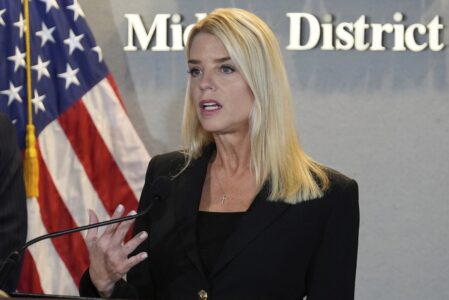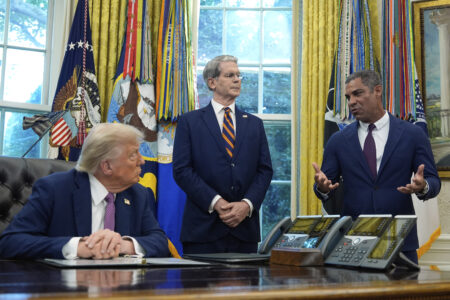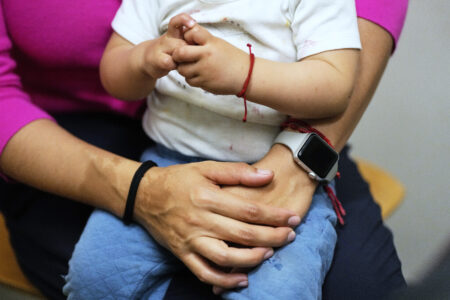Morrisey’s religious vaccine exemption executive order faces first setback in court

(Photo Illustration - MetroCreativeConnection)
CHARLESTON — While a Raleigh County case involving the legality of Gov. Patrick Morrisey’s executive order allowing for religious exemptions to West Virginia’s compulsory immunization is now before the state Supreme Court of Appeals, the executive order faced its first setback in Mineral County. Twenty-Fifth Judicial Circuit Court Judge Cody Pancake denied motions Friday for a preliminary injunction and a temporary restraining order filed last month by parent Matthew Hansford against the Mineral County Board of Education and Mineral County School Superintendent Troy Ravenscroft. A written order was not available at press time. According to his Aug. 15 filing in Mineral County Circuit Court, Hansford received a religious exemption through the state Department of Health on Aug. 14, made possible though a Jan. 14 executive order from Morrisey. However, according to Hansford, the Mineral County Board of Education refused to honor the religious exemption and admit his son’s enrollment for the 2025-2026 school year. State code requires children attending school to show proof of immunization for diphtheria, pertussis, tetanus, polio, measles, mumps, rubella, varicella and hepatitis B unless proof of a medical exemption can be shown. A bill to allow for a religious exemption failed during the 2025 legislative session. Morrisey’s executive order cites the 2023 Equal Protection for Religion Act to allow for religious and conscientious objections to the state’s school vaccination mandates, which are then approved by the Department of Health. But the state Board of Education issued guidance to county boards of education in June to not accept religious exemptions and abide by the compulsory immunization law. “Despite the binding authority of Executive Order 7-25, the Equal Protection for Religion Act, and the Department of Health’s official approval, the MCBOE has refused to honor the exemption and has denied (son’s) enrollment/attendance,” attorneys for Hansford wrote. “As a result of the MCBOE’s refusal, (son) is being marked absent, creating a false record of truancy attributable not to Petitioner’s actions, but to the unlawful conduct of the MCBOE.” Courrier’s ruling marks the first time a lower court judge has ruled against the religious exemption executive order. A case in Kanawha County — on behalf of two parents with immunocompromised children — asking a judge to prohibit the Department of Health from granting the religious exemptions was re-filed in August after an earlier case was dismissed on technical grounds. That case was combined with a case filed in June Raleigh County parents Miranda Guzman, Amanda Tulley and Carley Hunter. A Raleigh County judge granted a preliminary injunction in July sought by the parents to prevent the West Virginia Board of Education, State Superintendent of Schools Michele Blatt, and the Raleigh County Board of Education from enforcing the compulsory immunization law, effectively grafting on a religious exemption. A hearing on a permanent injunction is scheduled for 14th Judicial Circuit Judge Michael Froble’s courtroom next week. The state Supreme Court announced Thursday that it would take up an appeal of that preliminary injunction filed by attorneys representing state and Raleigh County education officials, issuing a scheduling order which could set up arguments later next year. However, the Supreme Court declined to grant a motion seeking a stay of further proceedings in Raleigh County Circuit Court, and declined to grant a motion seeking an expedited review of the case. Froble’s preliminary injunction only allows the parents that are party to the lawsuit to continue to enroll their unvaccinated children in Raleigh County Schools for the current school year and does not apply to all 55 counties. Similar lawsuits are pending in Gilmer and Berkeley counties. Steven Allen Adams can be reached at sadams@newsandsentinel.com.





